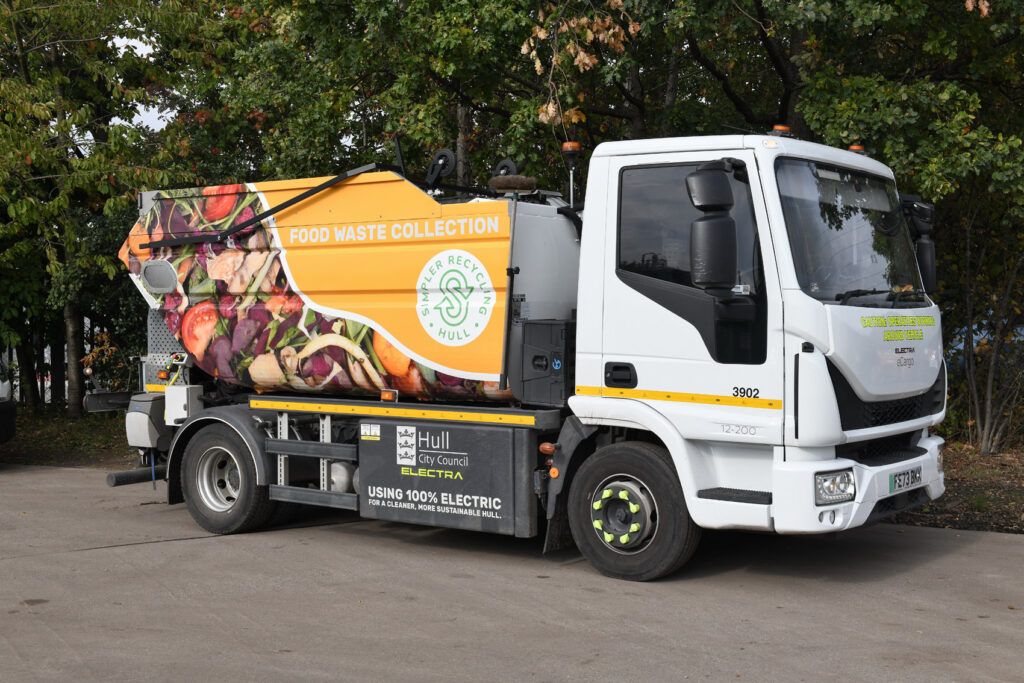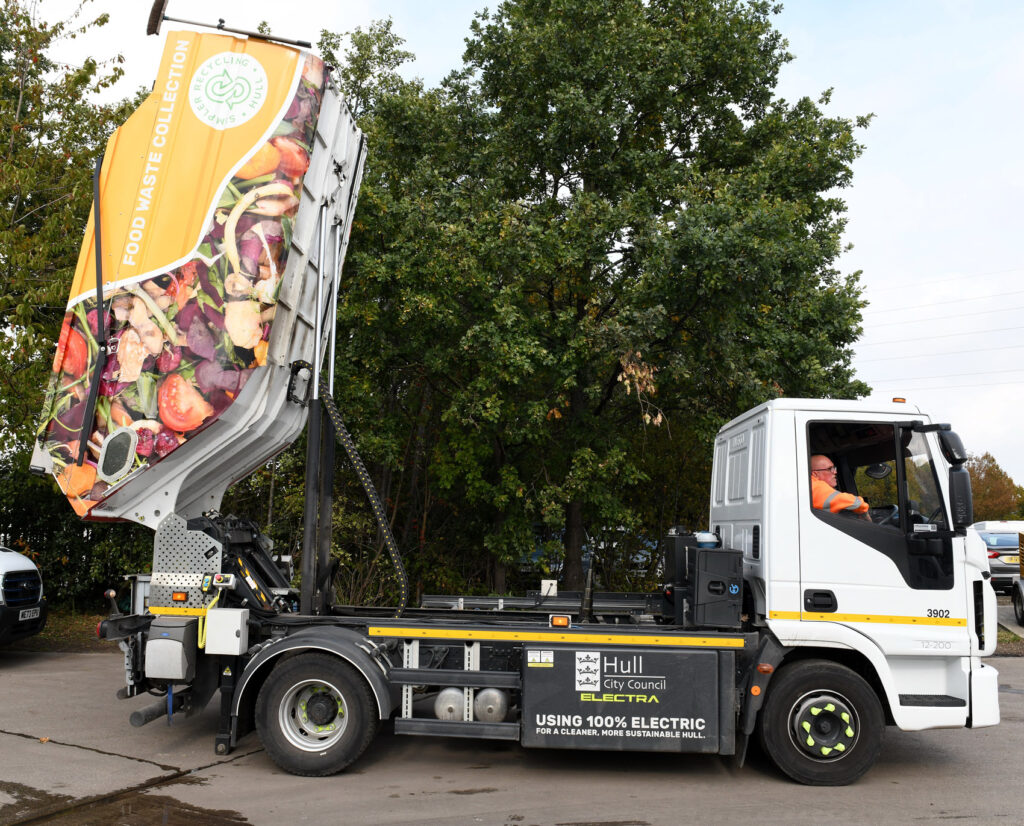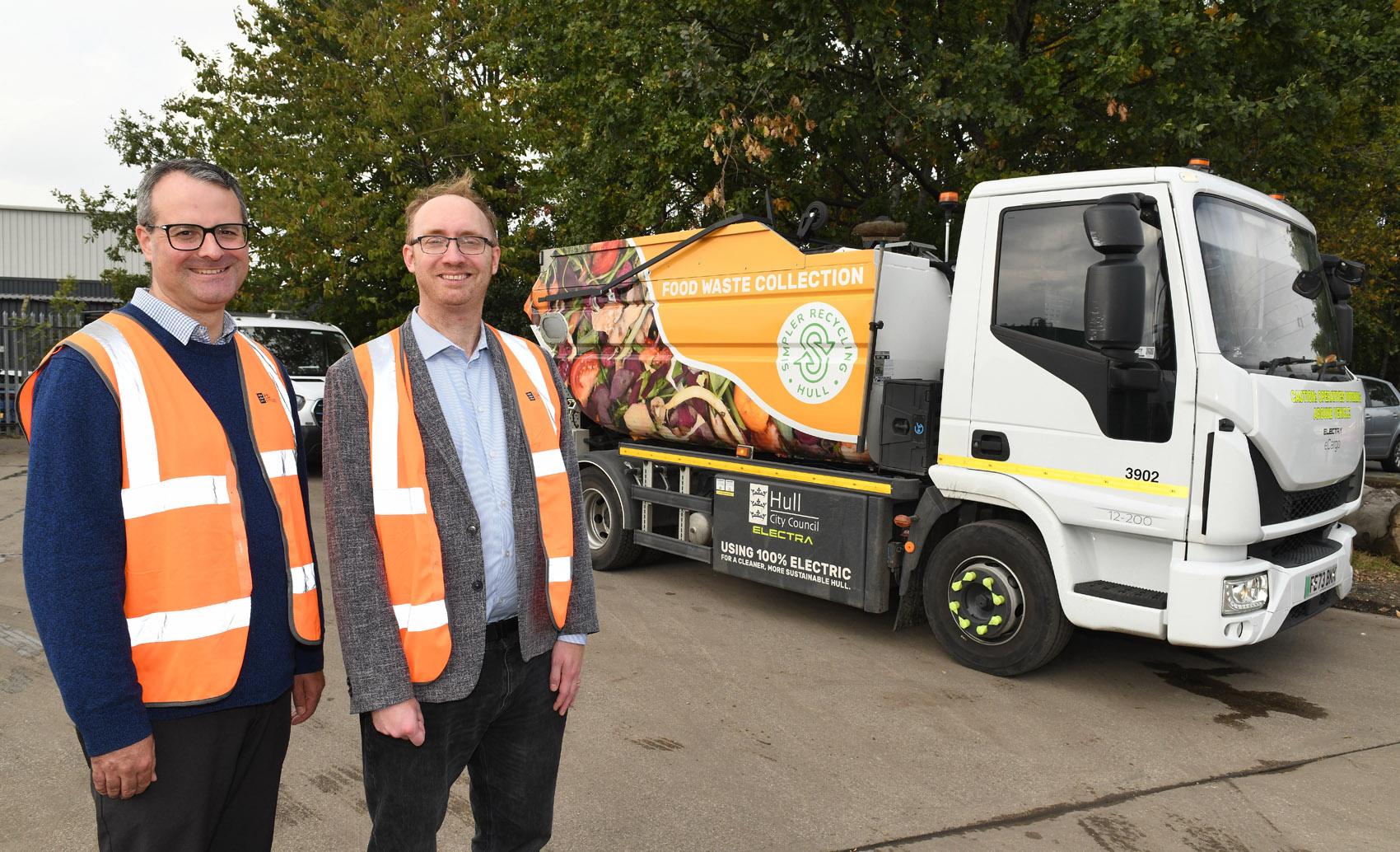Hull City Council has taken a further step towards its climate goals and improving air quality with the introduction of its first fully electric food waste collection vehicle.
The council’s waste management team is now operating its largest electric vehicle to date – a brand-new 12.5 tonne electric truck dedicated to food waste collection.
This addition to the fleet will support the government’s Simpler Recycling initiative, including weekly food and garden waste collections, which will be composted locally for use in horticulture and agriculture.

With a growing fleet of over 60 zero-emission battery electric vehicles (BEVs) – including cars, vans, and now a truck – the council operates one of the largest electric fleets in the region.
Previously, these vehicles would have been powered by diesel engines, contributing to greenhouse gas emissions and poor air quality. Now, as part of a phased replacement programme, the council is retiring older vehicles and replacing them with fully electric alternatives.
This latest investment marks a significant milestone in the council’s journey to achieve net zero emissions by 2045.
Fleet vehicles are currently the council’s second-largest source of carbon emissions, so transitioning to electric vehicles plays a vital role in reducing the organisation’s overall carbon footprint, as well as improving air quality. In addition to being environmentally friendly, electric vehicles are quieter, more efficient, and easier to maintain.
With transport – particularly road transport – now the UK’s largest contributor to climate change, the council continues to invest in cleaner, greener alternatives to help build a more sustainable Hull.

Councillor Mark Ieronimo, cabinet portfolio holder for transport and infrastructure at Hull City Council, said: “Introducing our first fully electric food waste vehicle is another big step forward in our journey to tackle climate change.
“We’re proud to be leading the way in Hull, with one of the largest electric fleets in the region. Every vehicle we add helps reduce carbon emissions, creating a more sustainable transport fleet.”
Councillor Quinn, portfolio holder for environment at Hull City Council, said: “By using an electric vehicle to collect waste, we can create a more sustainable Hull, not just for today, but for future generations.
“We’re proud to be making these changes. Every electric vehicle we add to our fleet is a step towards improving the air we breathe and reducing our impact on the planet.”
